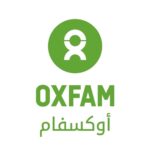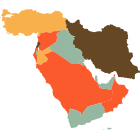Feasibility Assessment for Water Service Provision to Informal Tented Settlements (ITS) in Northern Bekaa
Background
The increased demand for water services in Lebanon, particularly in the North Bekaa region, due to the influx of Syrian refugees, presented significant challenges due to the presence of informal tented settlements (ITS). Oxfam’s Lebanon Program focused on addressing the water, sanitation, and hygiene (WASH) needs of these populations, along with Lebanese host communities, through infrastructure improvements and effective water management systems. The system faced issues such as inadequate water resources, poor sanitation, and financial deficits within the Bekaa Water Establishment (BWE), leading to heavy reliance on costly parallel water markets. To address these challenges, Oxfam commissioned Triangle to conduct a feasibility assessment to explore the potential for extending piped water networks to ITS in Northern Bekaa.
Triangle’s Assignment
Triangle was tasked with conducting a comprehensive feasibility assessment to explore the financial, social, and legal aspects of extending piped water networks to informal tented settlements (ITS) in Northern Bekaa. This involved evaluating the current water service provision modalities, assessing household-level water economics and capacity to pay, and understanding local community support or opposition. The goal was to provide evidence-based recommendations to guide Oxfam’s programming and inform discussions on sustainable water solutions for both Syrian refugees and host communities.
Objectives
The assignment had several key objectives:
- To analyze household-level water economics and capacity to pay among Syrian refugees and Lebanese host communities.
- To identify local community support or opposition to extending piped water networks to ITS.
- To assess the legal and political opportunities and barriers to extending water networks at national and local levels.
- To provide a comparative analysis of the impacts of current water service modalities on household income and wellbeing.
- To inform Oxfam’s program design and policy work regarding water service provision for Syrian refugees.
Research Approach & Methodology
Triangle employed a mixed-method approach to gather comprehensive data for the assignment. The methodology included:
- Literature Review: Conducted a thorough review of existing documentation, including Oxfam’s internal reports, relevant studies on water service provision, and legal frameworks governing water resources in Lebanon.
- Scoping Visits: Conducted initial field visits to nine ITS and host communities in Northern Bekaa to understand water supply modalities, social dynamics, and community perceptions.
- Focus Group Discussions (FGDs): Conducted 10 FGDs disaggregated by gender, age, and community type to gather qualitative data on water service perceptions and needs.
- Key Informant Interviews (KIIs): Conducted semi-structured interviews with selected stakeholders, including community leaders, local authorities, and service providers.
- Water Expenditure Survey: Implemented a stratified random sampling survey to assess water expenditure and willingness to pay among ITS residents and host communities.
- Data Analysis: Utilized SPSS and grounded theory methods to analyze quantitative and qualitative data, ensuring robust findings to inform the final report.
- Reporting: Synthesized findings in a comprehensive report with actionable recommendations for Oxfam’s programming and policy advocacy efforts.
Project:
Feasibility Assessment for Water Service Provision to Informal Tented Settlements (ITS) in Northern Bekaa

Duration:
March – September 2016
Lebanon
